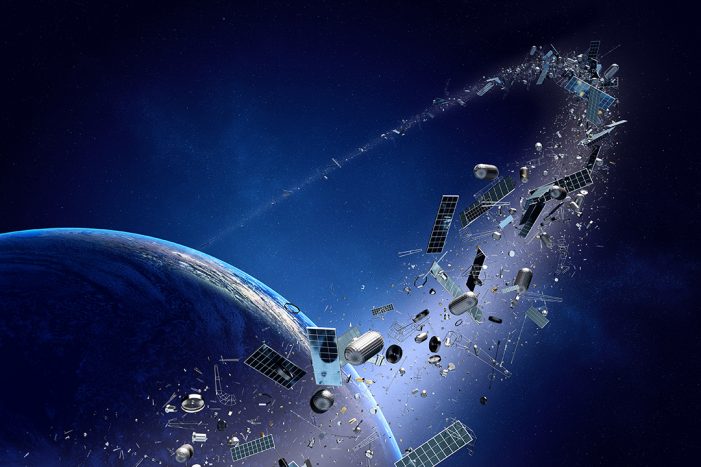(ROCKWALL, TX — Oct. 7, 2019) Midway Island is home to the cormorants, long-necked birds with voracious appetites. Sadly, a massive patch of non-biodegradable refuse is swirling in that area of the Pacific Ocean, and these elegant creatures are dying prematurely—their stomachs filled with plastic debris.
That’s only one terrible consequence of garbage patches at sea. And nearly all of us share the blame for this scourge since we can’t seem to live without plastic. It’s everywhere.
One determined young man has created the Ocean Cleanup Project; his 2000-foot-long floating boom was built to trap a plastic island in the Pacific. No success so far, but God did say of mankind, “nothing they plan to do will be impossible for them.” [Genesis 11:6*]
My family faithfully recycled household waste for years until we moved to an area with no pick-up service and hauling our bags to a recycling station became burdensome. Learning that the market for these materials is currently too limited for the massive supply further weakened our resolve.
It’s hard to be optimistic about our pollution problem since mankind has stewardship of Earth. We can hope to find future uses of recyclable material—highways paved with microplastic asphalt maybe? However, our trash issues go beyond land and sea.
A long trail of debris fills Earth’s orbit: broken satellites, spent rocket parts and more space-age rubble. Just one Chinese anti-satellite weapon test added some 150,000 pieces to the not-so-heavenly junk pile. Scientists have considered using harpoons, nets, magnets, and other devices to tackle the galactic clutter.
Further out in our galaxy there’s a black hole estimated to be more than four million times the size of our sun. By its strong gravitational pull, it traps celestial body parts within reach—possibly including fiery remains of collapsed stars.
So, instead of thinking of black holes as big scary things, we might view them as God’s vacuum cleaners. Surely, like sharks and other things we want to avoid, they serve a useful purpose. They might even serve to hold galaxies together, according to scientists.
Preserving the heavens and Earth is ultimately beyond man’s ability. The natural elements are God’s, after all, created by and for the Son of God. [Colossians 1:16] They will pass away, but God’s people can anticipate a new heaven and a new earth with no more death or mourning or crying or pain. [Revelation 21:1-4]
God showed his concern for man’s greater pollution problem: sin, which leads to eternal death. Like a black hole, sin is too strong for us to resist on our own. “For God so loved the world that he gave his one and only Son… to save the world through him.” [John 3:16-17]
The apostle Paul explained that believers are washed, sanctified, and justified “in the name of the Lord Jesus Christ and by the Spirit of our God” [1 Corinthians 6:11]; we’re “a new creation; the old has gone, the new has come!” [2 Corinthians 5:17]
However, this sin-sick world’s morally toxic atmosphere works against our faith. Like plastic debris, sin’s effects are everywhere. Paul warned that sin would increase: “people will be lovers of themselves, lovers of money, boastful, proud, abusive, disobedient to their parents, ungrateful, unholy, without love, unforgiving, slanderous… lovers of pleasure rather than lovers of God.” [2 Timothy 3:1-4]
Yet, according to 2 Peter 2:3-4, God has provided all we need for godly living: “He has given us his very great and precious promises, so that through them you may participate in the divine nature and escape the corruption in the world.”
*New International Version
By Patti Richter. Patti writes and edits Christian faith articles and has co-authored Signs of His Presence: Experiencing God’s Comfort in Times of Suffering (March 2019). Read more of her essays at blueribbonnews.com/category/faith.
 Our monthly print edition is delivered free to ~22,000 homes in Rockwall and Heath, TX.
Our monthly print edition is delivered free to ~22,000 homes in Rockwall and Heath, TX.
To share your good news and events, email editor@BlueRibbonNews.com.
Subscribe to our email newsletter here.
Advertising: 214-342-8000 or advertising@BlueRibbonNews.com.







